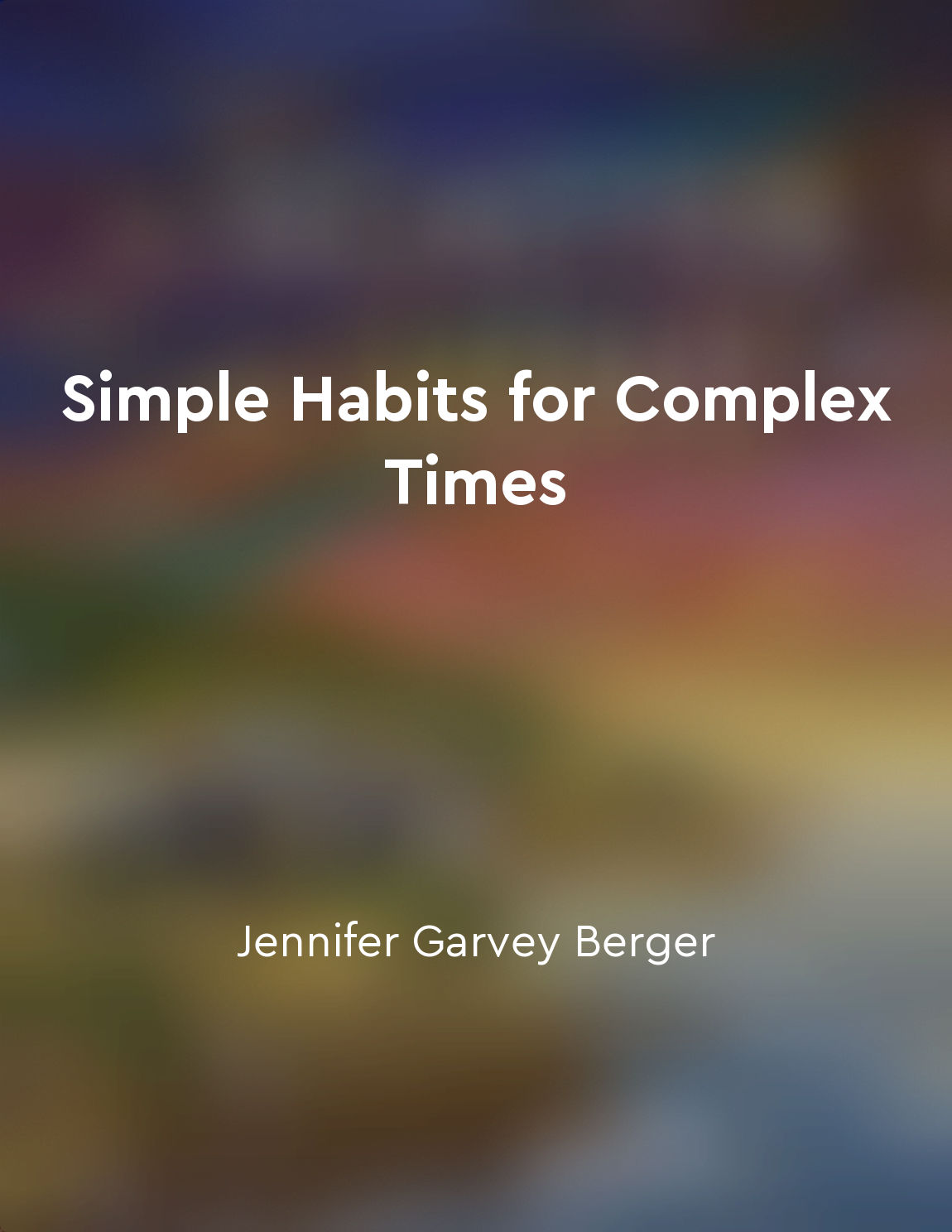Build resilience from "summary" of Simple Habits for Complex Times by Jennifer Garvey Berger,Keith Johnston
Resilience is not about bouncing back from adversity; it is about deepening your capacity to navigate through the complexities of the world. It is about building the capacity to withstand and learn from the challenges and uncertainties that come your way. Resilience involves being able to see the bigger picture, to understand the interconnectedness of things, and to adapt to changing circumstances. To build resilience, you need to cultivate a growth mindset - a mindset that sees challenges as opportunities for growth and learning. This means being open to new perspectives, being willing to experiment and take risks, and being able to learn from failure. It also means being able to let go of the need for certainty and control, and to embrace the uncertainty and ambiguity that are inherent in complex times. Resilience also involves developing a strong sense of self-awareness - the ability to reflect on your thoughts, emotions, and actions, and to understand how they impact your relationships and your decision-making. This self-awareness allows you to recognize your strengths and weaknesses, to acknowledge your biases and blind spots, and to take responsibility for your own growth and development. Another key aspect of building resilience is developing a sense of connection and belonging. This involves cultivating strong relationships with others, building a supportive network of peers and mentors, and fostering a sense of community and belonging. These connections provide you with the support and encouragement you need to navigate through difficult times, and they help you to see beyond your own perspective and to appreciate the diversity of experiences and viewpoints that exist in the world. In summary, building resilience is about developing the capacity to navigate through the complexities and uncertainties of the world with grace and skill. It involves cultivating a growth mindset, developing self-awareness, and fostering connections with others. By building these capacities, you can become more adaptable, more resourceful, and more effective in engaging with the challenges and opportunities that come your way.Similar Posts

Failure is a stepping stone to success
The idea that failure can be a stepping stone to success is a fundamental aspect of having a growth mindset. When we adopt a gr...
Building strong relationships is important for personal success
One of the most valuable assets you can have in your pursuit of personal success is the ability to build strong relationships w...
Trauma can be stored in the body's tissues and muscles
When we experience trauma, it can leave a lasting imprint on our bodies. The effects of trauma go beyond just our minds and emo...
Learn from failures to refine selfdiscipline
When it comes to self-discipline, failures are not setbacks but opportunities for growth. It is through our failures that we ca...
Learn to adapt to changing circumstances
In life, we are often faced with unexpected challenges and changes that can throw us off balance. It is crucial to be able to a...
Surround yourself with support and positivity
In a world filled with challenges and uncertainties, it is crucial to surround yourself with individuals who uplift and support...

Prioritize selfcare and well-being
It is essential to make your well-being a top priority in your life. This means taking care of yourself physically, mentally, e...
Emotional intelligence is a valuable skill
Emotional intelligence, as stated by Gustavo Ferreira in 'Gatilhos da Alma', is a crucial skill that can greatly impact one's p...
Embrace the pain
In life, we are often faced with pain and challenges that can feel overwhelming. Many people choose to avoid and run away from ...
Focus on what truly matters in life
In a world filled with distractions and noise, it can be easy to lose sight of what truly matters in life. We are bombarded wit...

